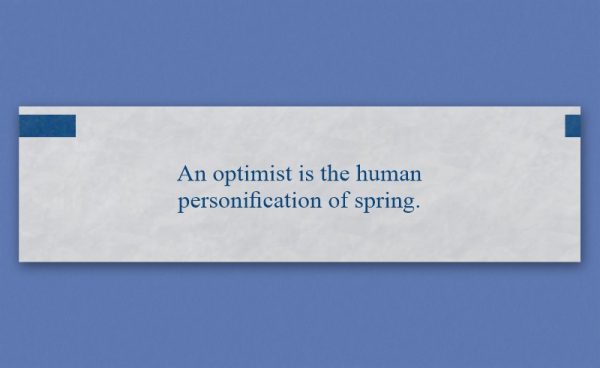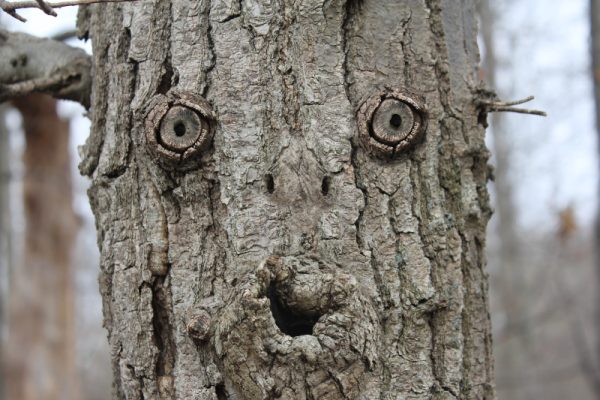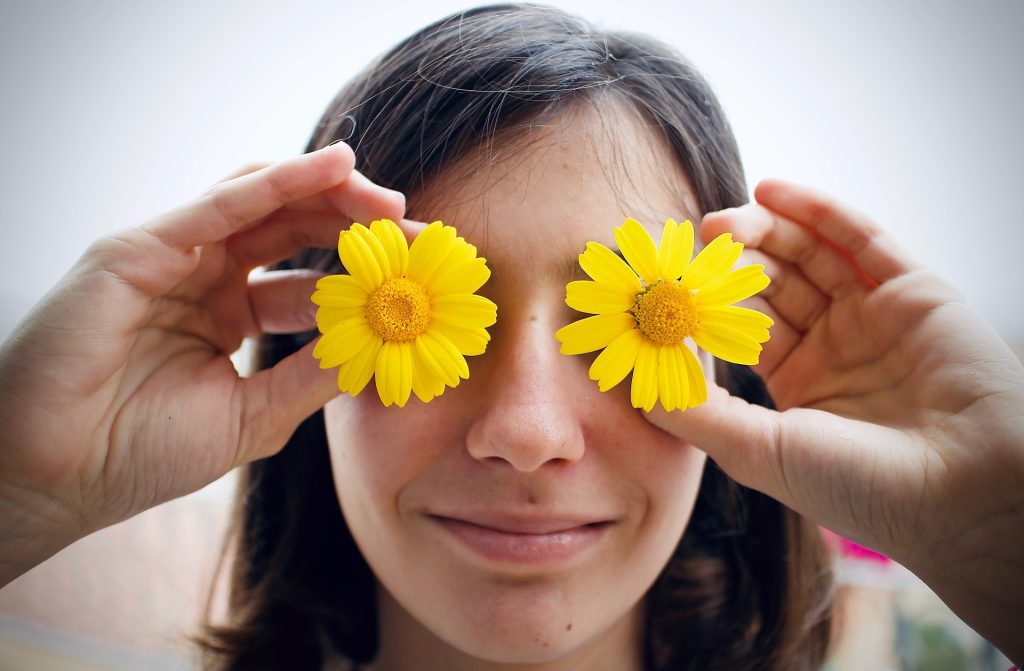Fortune Cookie Friday: Tips For Being Optimistic
It’s April, and the dark skies of winter are behind us. Our spring equinox was a couple of weeks ago, but for a short time, both hemispheres of our little blue planet received equal amounts of sunlight.
Anyone suffering from seasonal depression will be glad to soak in that sun. Although, as much as sunlight can help, we don’t have to wait for it to be happy. A positive outlook can boost our mood and even that of others.

Reading this quote by writer Susan J. Bissonette cheered me up as I planned for today’s post. It reminded me that we could all be positive even if we aren’t optimistic people.
I didn’t have a bad childhood, but I also didn’t grow up in a happily-ever-after household as one would see on TV. It was the 1970s, so there was high inflation and political issues on top of an oil embargo. My dad had a seasonal construction job, so we had to adjust our spending during hard times, and we had plenty of them. My parents did their best to make my siblings and me not feel the pinch, but I could tell it was a burden they worried about often.
Adversities like these can take a toll, and I recall feeling the strain occasionally. Nonetheless, I became an optimistic adult—an attitude I shared with my husband and tried to teach our children.
There are some physical and behavioral benefits of a positive attitude. Optimistic people tend to be healthier compared to less optimistic people. They have lower levels of inflammation and better cholesterol levels. I’ve written extensively about how our smiles can make us happier and healthier.
Positive people are also more likely to engage in healthy behaviors. They stay active, eat right, and tend not to smoke or abuse alcohol—a depressant, by the way.

It pays to be optimistic if we want to live happier, healthier lives. But where does our optimism come from?
According to Dr. Laura Kubzansky, Professor of Social and Behavioral Sciences and director of the Society and Health Laboratory at the Harvard T.H. Chan School of Public Health, we inherit approximately 25% to 30% of our optimism. But there is more to optimism than just genetics.
The tendency to expect the best possible outcome or dwell on the most hopeful aspects of a situation has a chicken-and-egg relationship with that positive outcome. Dr. Kubzansky said, “The power of optimism is not just having a sunny disposition, but applying this mindset to make positive change.”
Income, education, geography, and social status can influence one’s optimism, but they don’t have to rule it. So if you aren’t as optimistic as others, then there is something you can do about it. Here are some tips to help be more optimistic.
Seize the Moment:
We can look for opportunities when things aren’t going our way. For example, we can sing along to the radio when stuck in traffic or enjoy a romantic candle-lit dinner when the power goes out. Inconvenience and adversity can happen, but how we react to them makes a difference.
Play To Your Strengths:
We all have some things we do well, even if they seem small. Whether creative, kind, or courageous, we can practice using one of our many character strengths daily to develop them further and experience a little success in life.
Have an Attitude of Gratitude:
Every day is a gift; we should be thankful for each one we get. Most optimists are grateful for what they have and share it with others. We should take a moment to recognize the blessings in our lives. We can list them, tell our friends and family, or let the thankful spirit move us to bless others.
Be Purposeful:
Positive change can’t happen until we take that first step. Everything we do should have a purpose if we want to find success. Even if we struggle or make mistakes, we can still succeed by learning from the experience. We only fail when we give up.
Being an optimist doesn’t always come naturally. It may take some effort. Just as the sunflower turns to the sun, an optimist looks to the bright side of life. With a bit of practice, optimism can become a habit worth having and shed some light on our lives and others.





